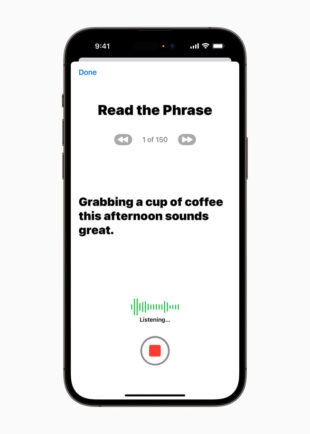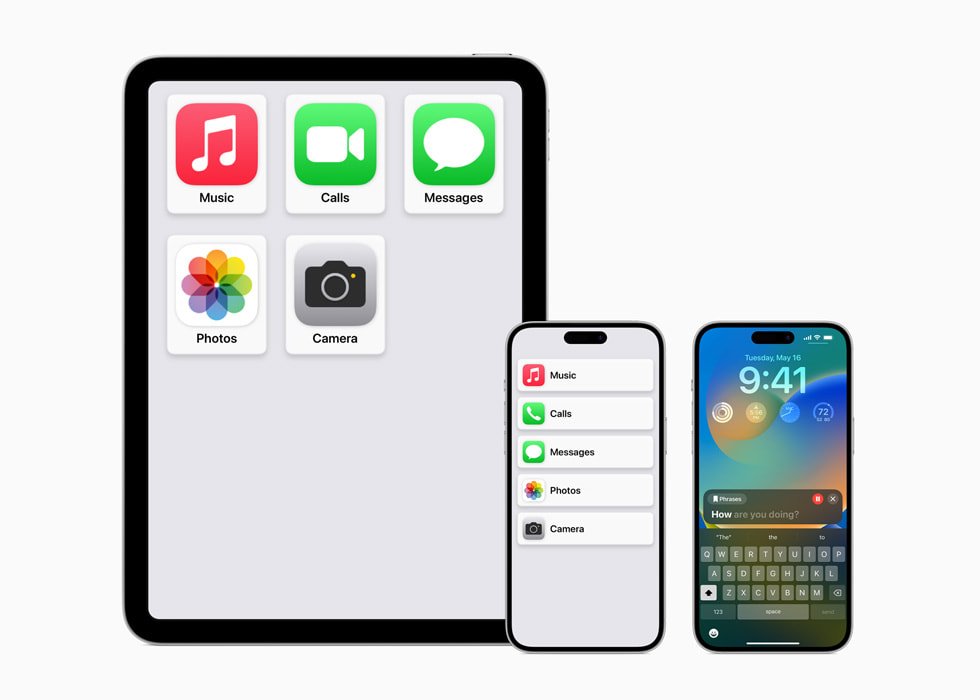Apple has announced new features for iOS, iPadOS and macOS. Many of them are designed for people with disabilities — visual, hearing and cognitive disabilities.
On the devices of the Cupertino company, the Personal Voice option will appear to create a "copy" of the user's voice. To do this, you will need to take a 15-minute test with special tips on an iPhone or iPad.

It will be paired with Live Speech ("Live Speech"). As the name implies, this is a voice-over of the text. Users will be able to type a message, and the system will voice it. For example, during a call.
At first, both functions will work only with English and on devices with Apple processors.
The Assistive Access mode will also appear on the iPhone and iPad. This is a set of basic functions (camera, messages, calls, photos and music) combined into one application.
The function offers a customizable interface, as well as enlarged icons and text labels. For example, for users who prefer visual communication, "Messages" provides a keyboard with emojis only, as well as fast recording and sending video messages.

A "magnifying glass" will receive new functions, which allows you to use the camera as a magnifying glass. She will learn to recognize small text symbols and read them out loud. For example, on the buttons of the microwave. The extension will be available in several languages at once: English, French, German, Spanish, Chinese, Japanese and Ukrainian.
Additional functions:
All these options will be available by the end of 2023.
And already today, Apple Music and Apple Maps have added the ability to search for concerts. There are 40 new guidebooks in "Maps", which were prepared by the editors of the music service. With their help, you can find "the best places to listen to live music". So far, the option is available only in some cities of the USA, Europe, Mexico, Japan and Australia.